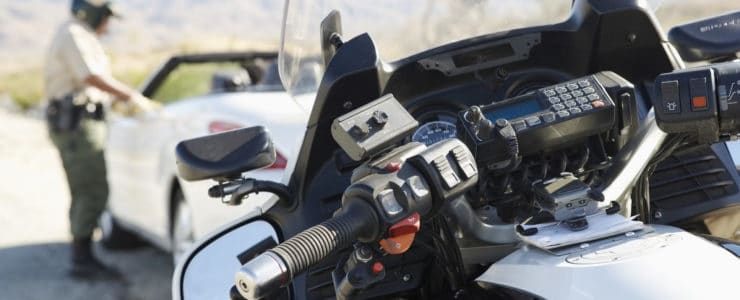
Have you ever wondered about the difference between a citation and a ticket? These terms are often used interchangeably, especially during traffic stops, causing confusion for many drivers.
If you or someone you know received a traffic ticket, it’s imperative you know that you have options other than just paying the fine and accepting the consequences.
Contact Ticket Busters, a leading ticket defense law firm, to discuss your case and explore alternative solutions, including reducing or dismissing the charges altogether.
Definition of Citations and Tickets
In the realm of traffic law, the terms “citation” and “ticket” are often used interchangeably, causing confusion among drivers. To clarify this common misconception, it’s essential to understand that there is no difference between a citation and a ticket.
The term “ticket” is simply a less formal way of referring to a written document that outlines a driving violation and penalties, known as a “citation” for legal purposes.
Tickets or citations serves as a written record of something you did wrong while driving or operating your vehicle, including violations that occur while parked. The document typically includes your name, license number, the officer’s name, the violation, and other relevant details.
Issuing Authority
Citations are typically issued by law enforcement officers (e.g. Nevada Highway Patrol) during traffic stops. However, in some instances, a speeding camera may detect a violation, resulting in a citation being mailed to the offender.
When an officer pulls over a driver and issues a citation, they usually explain the alleged violation. For example, if caught speeding, the officer might have clocked the speed with a handheld radar gun.
It’s important to note that receiving a citation doesn’t equate to an admission of wrongdoing.
Instead, by accepting the ticket, you acknowledge receipt and agree to either pay the fine or appear in court to contest it. In Las Vegas, Nevada, as in most jurisdictions, citations can be issued for various infractions, ranging from minor parking violations to more serious offenses like reckless driving or DUI.
Types of Citations and Tickets
In Las Vegas, Nevada, and across the United States, citations and tickets fall into several categories. Understanding these distinctions has an impact on your driving record and potential consequences. Let’s explore the main types:
Moving Violations
Moving violations occur when a driver breaks traffic laws while the vehicle is in motion. These offenses are often seen as more serious because they can directly affect road safety. Examples of moving violations include:
- Speeding
- Running red lights or stop signs
- Failing to yield right-of-way
- Texting while driving
- Reckless driving
Non-Moving Violations
Non-moving violations occur when a vehicle breaks traffic code while not in motion, although some can happen when the vehicle is moving. These violations usually involve parking negligence or defective vehicle equipment. Examples include:
- Parking in front of a fire hydrant
- Expired registration or insurance
- Broken taillights
Non-moving violations generally do not reflect on your driving skills and therefore do not result in points on your license. However, they can still lead to fines.
What Are My Options After Receiving a Citation or Ticket?
Upon receiving a citation or ticket, you have several options. You could choose to:
- Pay the fine
- Contest the citation in court
Paying the fine is an admission of guilt and can result in points on your driving record, leading to increased insurance premiums and potential license suspension. On the other hand, contesting the citation in court gives you an opportunity to explain your side of the story and potentially get the charges reduced or dismissed.
If eligible, enrolling in traffic school may also be an option to keep points off your license. However, this option is not available for all types of violations. That’s why it’s best to consult with a traffic ticket defense attorney to explore all your options and determine the best course of action for your specific case.
Recent Law Change in Nevada
Effective January 1, 2023, a significant law change in Nevada has decriminalized many traffic violations, transforming how infractions are handled in the state. Prior to this change, certain minor violations would result in criminal charges, which could lead to harsher penalties, including potential jail time.
However, under the new law, many of these offenses are now classified as civil infractions. This shift means that instead of facing criminal penalties, drivers can expect penalties that often involve fines without the fear of a criminal record.
For example, offenses such as running a stop sign or failing to signal a lane change, which once carried potential criminal repercussions (misdemeanor offenses, which carry up to 6 months in jail and/or fines of up to $1000), are now treated as civil matters.
Fines for civil infractions typically do not exceed $500, although some exceptions may apply.
Received a Citation? Contact Ticket Busters
If you or someone you know has received a traffic citation, it’s crucial to understand your options and the potential consequences of accepting the ticket. At Ticket Busters, we have a team of experienced attorneys dedicated to defending drivers against traffic violations in Las Vegas, Nevada.
We understand that receiving a citation can be stressful and overwhelming. You may think that you can just pay the fine and move on, but doing so may have long-term consequences. That’s why we urge you to consult with our attorneys before making a decision.
Our team will review your case, explain your options, and work tirelessly to defend your rights and protect your driving record. Don’t let a traffic citation impact your life negatively.
So, if you or someone you know has received a traffic citation in Las Vegas or any other city in Nevada, contact us today for a free consultation. We are here to help you fight your citation and achieve the best outcome possible.
Frequently Asked Questions
What is the difference between a traffic ticket and citation?
In essence, there is no difference between a traffic ticket and citation. Both terms refer to the official document issued by law enforcement for a violation of traffic laws. Tickets is just a “less” formal way of saying citation.
Is it worth fighting a traffic citation?
It depends on the specific circumstances of your case. Consulting with an attorney can help you understand the potential consequences and determine if fighting the ticket is in your best interest. However, it’s essential to note that contesting a ticket will require time and resources, so make sure to weigh all factors before making a decision.
What should I do if I receive a traffic citation?
If you receive a traffic citation, the first step is to carefully read the ticket to understand the violation and your options. You can choose to pay the fine, which is considered an admission of guilt, or contest the citation in court. If you’re unsure about how to proceed, consulting with a traffic ticket defense attorney can provide valuable insights and help you decide on the best course of action for your situation.
How can I contest a traffic ticket in court?
To contest a traffic ticket in court, you must typically plead not guilty and request a hearing. It’s essential to gather evidence, such as photographs, witness statements, or any documentation that supports your case. A traffic ticket defense attorney can assist you in building a strong defense and representing your interests during the hearing.
Will a traffic citation affect my insurance rates?
Yes, receiving a traffic citation can lead to an increase in your insurance premiums. Insurance companies often view moving violations as indicators of higher risk, which may result in higher rates or even the loss of coverage. The specific impact will vary based on the severity of the violation and your overall driving history, making it crucial to address any citations promptly.
Can I attend traffic school to avoid points on my license?
In some cases, enrolling in traffic school may allow you to avoid points on your driving record, provided you meet specific eligibility criteria. However, traffic school options are not available for all types of violations, and certain more serious infractions may disqualify you from this benefit. Consulting with a traffic ticket defense attorney can help clarify your options regarding traffic school.
What are the consequences of not responding to a traffic citation?
Failing to respond to a traffic citation can lead to severe consequences, including additional fines, a warrant for your arrest, or a suspension of your driver’s license. Courts typically take non-response seriously, as it can hinder the judicial process and violate state laws. It’s crucial to address any citations promptly to avoid escalating penalties.


